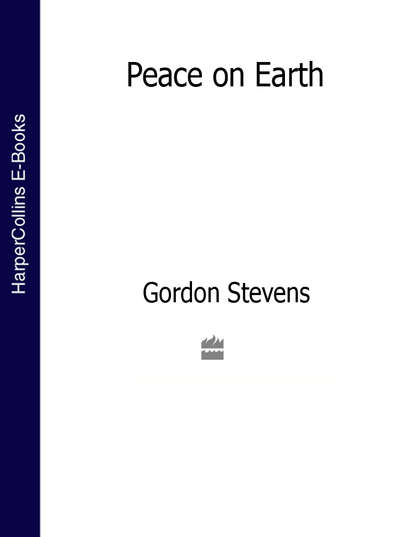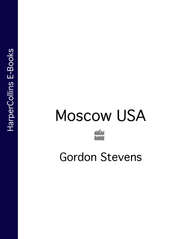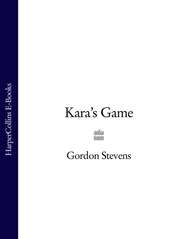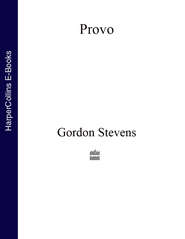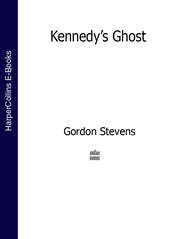По всем вопросам обращайтесь на: info@litportal.ru
(©) 2003-2024.
✖
Peace on Earth
Автор
Год написания книги
2018
Настройки чтения
Размер шрифта
Высота строк
Поля
The kid, Enderson was suddenly thinking, the IRA man’s bloody kid: he wasn’t there, the man in the roofspace hadn’t seen him. He knew that McDonald had expected trouble, had left the boy somewhere.
‘Boy in car,’ he heard the voice, still dispassionate. ‘Mother trying to get door open, door seems stuck. Car on fire. Attackers’ car moving off.’
‘Move it,’ Enderson was saying, the driver already accelerating, tyres screeching as they turned off the street. The women were already on the street, the crowd already gathering. ‘Fire spreading in car,’ the man in the roofspace was saying. ‘Can see boy inside.’
He knew what they would say when he returned to base, how they would tell him he shouldn’t have blown the operation, knew the Special Branch people would accuse him of endangering their informant. They were in the Falls, the driver cutting between the crowd, he could see the car, the flames beneath it. ‘Cover me,’ he was saying, the driver braking hard and the men moving fast.
Eileen McDonald heard the sound and knew it was the car again, knew they had come back for her and her husband, ignored it, pulled at the door, tried to get her Liam out. On the other side she could see her husband, picking himself off the ground, coming round, trying to help her. The car behind her was stopping, she half turned, waiting for the bullets, the next bomb, saw the men, faces blackened, British army uniforms. No insignia, she saw, no markings, knew who they were, did not have to think what they were doing there. The flames were spreading, the door handle jammed. The man was coming forward, the others protecting him, not looking at the car, looking out, guarding him. She saw the weapons on his body, the sawn-off shot gun in his hand. He was pushing her out of the way, pushing her husband out of the way, blasting the door open, pulling her Liam out, the fire licking at the petrol tank.
The door was only half open; Enderson reached in, trying to open it, felt the tearing and burning in his arm as he pulled at the door, the flames on his jacket.
She saw the man pulling the boy out, saw he had been injured, one of the other men coming forward, putting out the fire. She saw the injury to his arm, tried to move to help him, watched as he pulled her son away from the car, the men round him moving with him, everyone moving back, away from the car, away from the explosion. She was looking at her son, at the way the man was laying him on the ground, seeing the red, so much red she was suddenly thinking, the blood pouring from her son’s body, knew he was not breathing, knew he was dying, his insides pouring out, his tiny lungs giving up the fight for breath. Somewhere, she did not know where, she heard the ambulance, knew they would not know what to do, would not know how to save her son, knew they would be too late.
The man with the blacked-out face was reaching to his gun belt, pulling out a pack, inserting the tube into her son’s mouth, clearing the airway, enabling him to breathe, pulling his body together, ramming the padding and bandages on his wounds, stopping the red pouring from him. Just like the accident unit at Birmingham Hospital, Enderson was thinking, just like when he had done his six months on the emergency unit, just like the night they had brought in the first victims of the motorway pile-up.
The photographer was parking his car by the drinking club on the corner, his camera on the seat beside him. He had been on the nightly tour, hoping for a picture, knowing there would be nothing so close to Christmas, when he had heard the shooting, known where it had come from. He heard the sound as the car blew up, knew he had missed it and ran anyway. The crowd was parting, he saw the woman kneeling over the boy, knew who the man treating the boy was, not who he was, not his name, what he was. The ambulance was pulling up, the ambulancemen pushing through the crowd. One chance, he thought, was reacting automatically. Seven thirty, he checked the time, worrying about the deadlines, if he would make them, if the photograph was as good as he thought.
Within twenty-five minutes he had developed the film and alerted the picture desks in London.
The image began to appear, he tilted the tray, letting the liquid run evenly over the print, and watched the details emerging, growing stronger, saw that the photograph was even better than he had remembered, knew without thinking what he would call it, what they would all call it. It was so close to Christmas, he thought. Knew the impact the photograph would have, the impact the three words of the title would have.
The saloon bar of the public house in Charlotte Street was busy, it would get even busier later. The walls were draped with decorations and a sprig of mistletoe had been pinned on the ceiling by the fireplace. Walid Haddad arrived five minutes early, bought himself an orange juice and stood against the bar, sipping it. Behind him a group of men he could not help overhearing were talking to two attractive young women he assumed were their secretaries. At eight thirty he made his way across the room, through the door at the side of the bar, and followed the signs to the gents’ toilet. A man in a business suit was leaning against the urinal singing to himself; he looked up, his eyes red and blurred, then turned back to the wall. The cubicle was empty, Haddad closed and locked the door and felt behind the cistern. The envelope was taped in place, he pulled it off, flushed the toilet and left.
Fifteen minutes later he collected the briefcase from the left luggage locker at Euston station and returned to the Holiday Inn, stopping at a chemist shop in Camden Town to purchase a pair of surgical gloves and a torch. Only when he was in his hotel room did he open the case, pull on the gloves, and examine the contents. The four ounces of plastic explosive were in a soap container, the transmitter, receiver unit, detonator and battery wrapped separately. He connected the receiver unit and battery to the bulb from the torch, and activated the transmitter, seeing the bulb light up and confirming the system was working, then he disconnected the bulb, replaced it with the detonator and began to assemble the bomb. At twenty minutes to ten he locked his bedroom door and left the hotel.
The mews in Camden Town was quiet and dark, the only light was through the curtains of the windows of the flats on the first floors and the street lamp thirty yards away at one end. It took Haddad less than a minute to open the garage door and another eight to attach the bomb to the petrol tank of the Granada. By eleven thirty he was back in his room. He helped himself to a drink and turned on the television, searching the channels for the in-house feature film. As he passed BBC 2, a late-night news flash caught his attention; he flicked past, then back again.
‘We are receiving more details of the terrorist incident in Belfast earlier this evening,’ the announcer was saying.
He turned up the sound.
The rain outside was heavy, the windows were running with condensation. In the corridor outside she could hear the clamour of the children as they began their morning break. In the corner someone was smoking, they had tried to ban smoking in the staff-room, but some people had objected. She joined the queue for tea, enjoying the atmosphere, and sat down. The morning newspapers were on the table in the centre of the room, the men amongst the staff were talking about them. ‘Amazing,’ she heard one of them saying, ‘absolutely amazing.’ She hadn’t seen the papers, been too busy to look at them. End of term, carol service that evening, the reports for her English class to finish. And the Christmas shopping, all of it, for her and the kids. One day, she sometimes thought, she ought to sit down and work out how she managed it all by herself, except there wasn’t any time. In the far corner the men were still talking about the newspapers. ‘Incredible,’ one of them was still saying, ‘absolutely bloody incredible.’ She took a cup of tea and sat down.
‘What are they on about?’ she asked.
‘Haven’t you seen the photo in the papers today?’
She said she hadn’t had the time; a colleague reached across, pulled one from the pile and gave it to her.
The picture filled the entire front page; it had been taken at night, she knew, the image grainy, almost unreal.
In the centre, lying, screaming, on the ground, was a small boy. He was burned, she could see, horribly burned and shot, the insides of his body seemed to be pouring from him, the remnants of his clothes hanging from his limbs. He was looking up, white-eyed with fear, at the two people bending over him, at the woman – she knew instinctively it was his mother – kneeling beside him, holding his hand, looking at the other figure, the man in the camouflaged clothing of the British army. She looked at the man, not aware she was sipping her tea; not aware of the noise in the staff-room. His hair was long and his face was streaked with black. He was bending over the child, his hands pulling the remnants of the shattered body together, stemming the blood that was flowing from the boy’s arteries, soothing the terrible burns. Even in the photograph she could see he was treating the child as if he was a doctor, as if he himself was a father. From his left shoulder hung a short squat weapon, she did not know what it was, a belt of cartridges across his chest, the pistol and grenades hanging from his belt. His left arm appeared to be injured, she could see by the way he was holding himself, see the way his own clothing had been burned away. The woman beside him was looking at him, appealing to him. She stared at the picture then read the handful of words below.
Late the previous evening, the single paragraph stated, a British army unit had gone to the help of a Catholic family who had been bombed and shot in their car. Both the father, a leading member of the Republican movement who was high on the Protestants’ wanted list, and the mother had escaped unharmed.
She read the words a second time, still not hearing the conversations around her, then looked at the three words of the headline across the top of the page, ‘Peace On Earth’.
It was almost Christmas, she remembered.
‘Anyone noticed this chap here?’ The deputy head was looking out the window. ‘He’s been standing there since half past nine.’ She put down the newspaper and went to the window, wiping away the condensation. On the pavement opposite the school entrance was a man, his hair was long and he was wearing a mackintosh, the collar turned up against the weather. The rain had flattened his hair and soaked through the shoulders of the coat.
The left sleeve of the mackintosh seemed empty.
The school bell went, she finished the tea and returned to the classroom, not concentrating, thinking of the photograph in the newspaper and of the man on the pavement. When the bell went for lunch she hurried back to the staff-room, left her books on the table, and pulled on her coat. At the last moment she remembered that those staff not on duty were going for a Christmas drink and that she had said she would go with them. They were waiting for her. She apologised to them, waited till they had gone, then went to the car park and started the car. It was still raining. She drove out the gate. The man was still there. She pulled across the road, stopped and opened the door for him.
‘Hello, Grah,’ she said.
‘Hello, love,’ said Enderson.
* * *
Haddad knew every inch of the route from Heathrow. He had driven it that morning, again and again, till he was sure.
He looked at his watch and decided to check it again, make sure there were no last-minute obstructions, no hold-ups.
He started the car, left the short-stay car park, and followed the road through the tunnel from the airport towards the M4. At the precise moment he pulled onto the motorway he pushed the indicator to record the mileage, remembering that he was accustomed to thinking in kilometres and forcing himself to think in miles. The traffic was light and moving quickly, he slid into the centre lane and headed towards London, noting again the marks he had identified earlier. One mile, first bridge over motorway; two miles, A312 exit and second bridge; three miles, service station. He ignored the time it took and concentrated on the distances. Four miles, fourth bridge; five miles, fifth bridge. Not much time anyway, even at the speed limit of seventy miles an hour, and the PLO driver wouldn’t stick to the limit. Six miles, three-lane carriageway into two lanes. And the cameras, the bloody cameras. Two of them, two hundred yards apart, the first facing west, the second east, towards London. He assumed they were for traffic control, that at the time of day he would follow the PLO car along the motorway the police would be paying little attention to them, knew nevertheless that they might be recording the pictures on tape, that it was a risk he could not afford to take. Seven miles, onto the flyover. Plenty of distance, he thought, as long as nothing went wrong; not much time though, he also thought, wondered what would go wrong. Eight miles, off flyover, almost into the suburbs. Nine miles, traffic lights at Hogarth roundabout. If it wasn’t over by then there would be problems. He circled the roundabout and turned back for Heathrow.
The black Granada arrived thirty minutes before Tunis Air flight TU790 was due. Haddad followed it into the airport complex, overtaking it as it slowed outside the terminal, then drove back to the short-term car park. The driver of the Granada parked outside the main entrance of the building, in front of a policeman, got out of the car, showed the man his credentials and disappeared inside. Haddad confirmed it was the man he had followed to the mews in Kentish Town the evening before and watched as the uniformed policeman spoke into the radio he carried on his left shoulder. Two minutes later an unmarked white transit van pulled up thirty yards behind the Granada. Ten minutes later the chauffeur came out, spoke to the policeman, and pulled away, the unmarked transit remaining in position.
The chauffeur had stepped up the security level, thought Haddad, was acting as he should do. Except that it was already too late. He sank back into his seat and looked again at the newspaper he had bought in the hotel foyer that morning, the picture covering the entire front page, the image of the man stemming the boy’s life as it flowed away from him. After fifteen minutes the black Granada returned and parked in front of the unmarked transit. The chauffeur got out and went again into the terminal building. Haddad laid the newspaper on the front passenger’s seat of the hire car, pulled the transmitter from beneath the seat, placed it on the newspaper, and folded the paper over it. The picture of the man in Belfast, he could not help notice, was staring at him.
He had waited another ten minutes when the chauffeur reappeared, carrying a suitcase; with him was a middle-aged man, slightly balding, whom Walid Haddad recognised from photographs as the PLO representative in London. The driver put the case in the boot and opened the door for the delegate, thanked the policeman, put up his hand to the unmarked transit then pulled away.
No second man, thought Haddad, no bodyguard. Only the driver. Not that it would have done any of them any good.
He moved after the Granada, not wanting to be either too close or too far back, remembering the points before the motorway at which he could become separated from his target. The traffic lights at the roundabout before the tunnel were green, the driver of the car in front of him was lost, the man’s wife telling him what to do. The Granada was almost at the lights. Still green. He was getting too far back, tried to pull round the car in front, was cut off by an airport coach crowded with schoolchildren. The lights turned to red. He looked for the Granada, saw that it had also stopped, and breathed a sigh of relief.
The lights changed, he followed the cars down the slope and into the tunnel. The Granada was in the left-hand lane, not travelling as quickly as he had imagined it would; the airport coach was in the right-hand lane, pulling away. He drove out of the tunnel, turned right at the roundabout, and headed towards the M4. Nine miles, he began to think, nine miles in which he had to kill the PLO man and his chauffeur. It did not occur to him that they were Palestinians like himself. He passed the Trust House Forte Hotel on the left, drove round the roundabout beneath the motorway and turned back onto the M4 towards London. At the precise moment he did so he leaned forward and pressed the mileage counter. One mile, first bridge. The Granada picking up speed, the driver talking to his passenger. Not much traffic, even less traffic than before. The Granada pulled into the central lane and began accelerating. Two miles, A312 exit and second bridge. Never much time, almost a quarter the distance already gone.
In front he could see the airport bus, the one filled with children. Three miles, service station. The PLO driver was sticking to the speed limit, he suddenly thought, knowing he could not do it from behind, could not be caught in the traffic jam that would pile up behind the blast, knowing also that if he was too far in front he would not be able to check that the road round the Granada was clear. The airport bus moved into the inside lane, the Granada overtaking it. ‘Yallah,’ he urged the driver. ‘For the love of Allah, move it.’ Four miles, fourth bridge, the Granada pulling away from the coach. Ideally he would need half a mile between the coach and the car. Could do it with less, of course, could overtake and do it now. Run the risk of killing the kids. Kids had died before, would die again. Except his orders were specific – only the PLO man and his driver should die, no one else. Especially not a busload of kids, Nabil would have said.
Four miles gone, another five to do it.
Plenty of time, he told himself, not believing it, beginning to accelerate, preparing to overtake the Granada. The coach six hundred yards behind.
The sirens blasted in his ear. Instinctively he slowed down, saw the white police BMW level with him, lights flashing. He had been set up, he thought. The device was only six inches from his left hand. Do it anyway, he thought, get the PLO man. The Granada driver had heard, was slowing down. Fool, Haddad thought, he should be reacting, pulling his man out of trouble. Do it anyway, he thought again. Saw the coach. Alongside him. The children looking at him, waving at him. The Granada only twenty yards in front.
Five miles, fifth bridge, only four miles to go. He told himself to calm down, looked across at the police car, ignoring him, ignoring the Granada, already pulling away. Six miles, three-lane motorway into two lanes. Almost too bloody late. The Granada beginning to accelerate again. Not quickly enough, the coach still too close. The cameras, one facing west, the other east. Never much time, he thought, almost no time at all.
The blind spot, the two hundred yards between the cameras. He pulled the wheel violently to the left, and jerked the hire car across the inside lane, braking hard. Behind him the coach driver slammed on his brakes, the children tumbling forward. In his rear view mirror Haddad saw the coach suddenly fill the entire frame. The Granada was pulling away, three hundred yards, almost four hundred. Bloody drivers, the coach driver was shouting at him, waving his fist. The Granada five hundred yards away, nearly six hundred. The children picking themselves up from the floor. Madman, the driver was gesticulating at him, bloody loony. He changed into third, accelerating away from the coach. Seven miles, onto the flyover, the office blocks on either side. The Granada was three hundred yards ahead, two hundred. The road in front and behind clear. Almost out of distance, he thought, almost out of everything. Eight miles, off the flyover and past the Granada. A hundred yards, two hundred yards clear, closing on another group of cars. In his rear view mirror he could see the Granada clearly.
He reached across to the passenger’s seat and unfolded the newspaper.
* * *
Pan Am flight number PA1 arrived at John F. Kennedy Airport on time, taxied across the runway, and began disgorging its three hundred and fifty-two passengers into the terminal building. Three hundred and fifty-one of them were innocent citizens, the three hundred and fifty-second was Abu Nabil. By six thirty he had cleared immigration and customs, using the passport he had used in Paris and London, and taken a cab to the Plaza Hotel. He checked into his room, switched on the early evening news programme and made a single telephone call confirming his meeting for the following morning.
The third item oh the news bulletin was the assassination in London of the PLO spokesman Hassan Nabulsi. The report showed video pictures of the remains of the man’s Ford Granada motor car, on the M4 motorway near Heathrow Airport. He had just returned from a meeting with Yasser Arafat, the report continued, adding that unofficial sources had confirmed that the type of bomb used was believed to be identical to that used by the IRA in Northern Ireland. The reporter, standing at the side of the motorway, the wreckage of the car behind him, speculated that the assassination was the latest episode in the struggle for supremacy within the various factions of the Palestinian movement. More sinister, he suggested, his collar turned up against the biting wind and the first cutting flakes of sleet, was the possibility of a link-up between the IRA and one of the extremist Palestinian groups.





